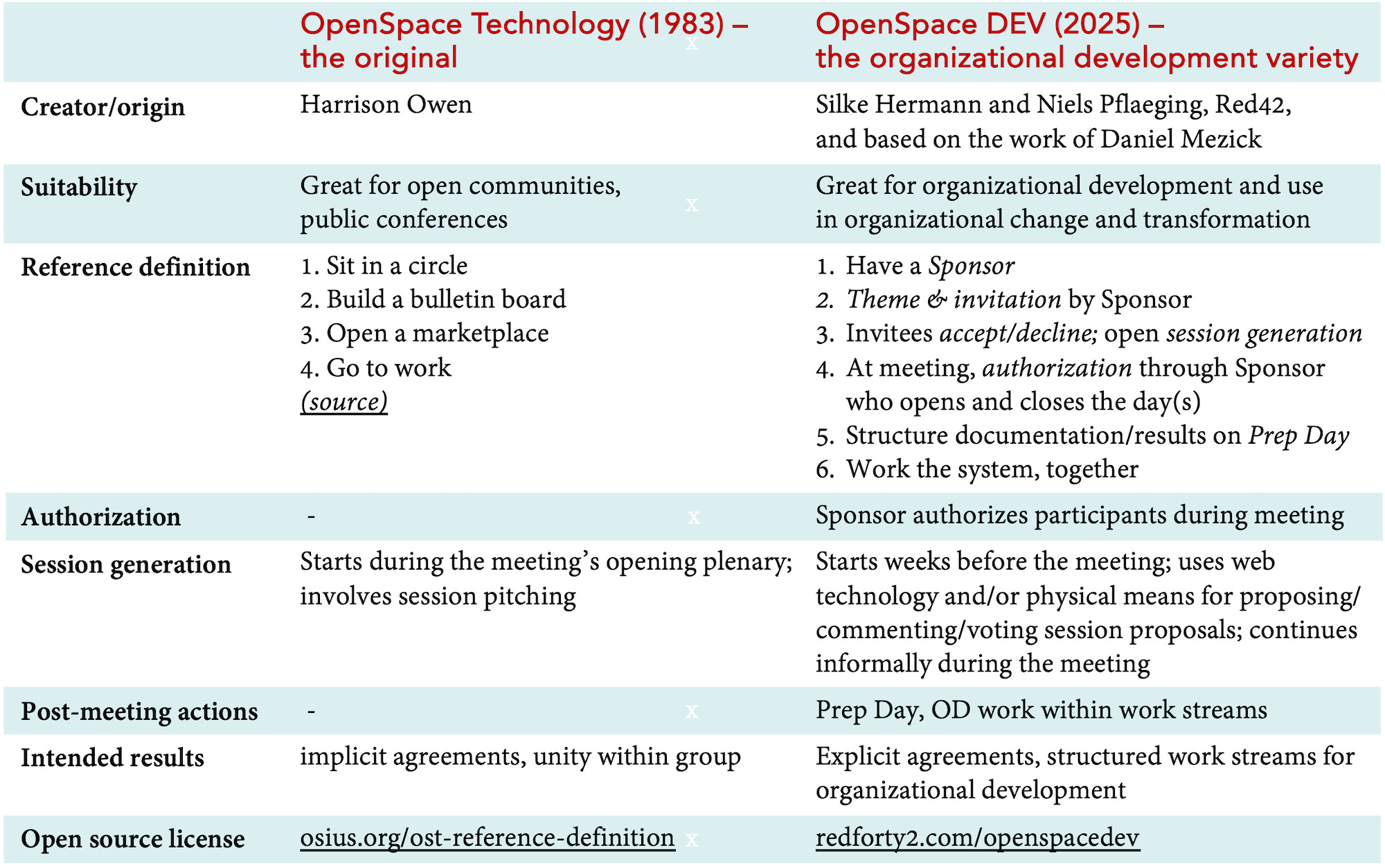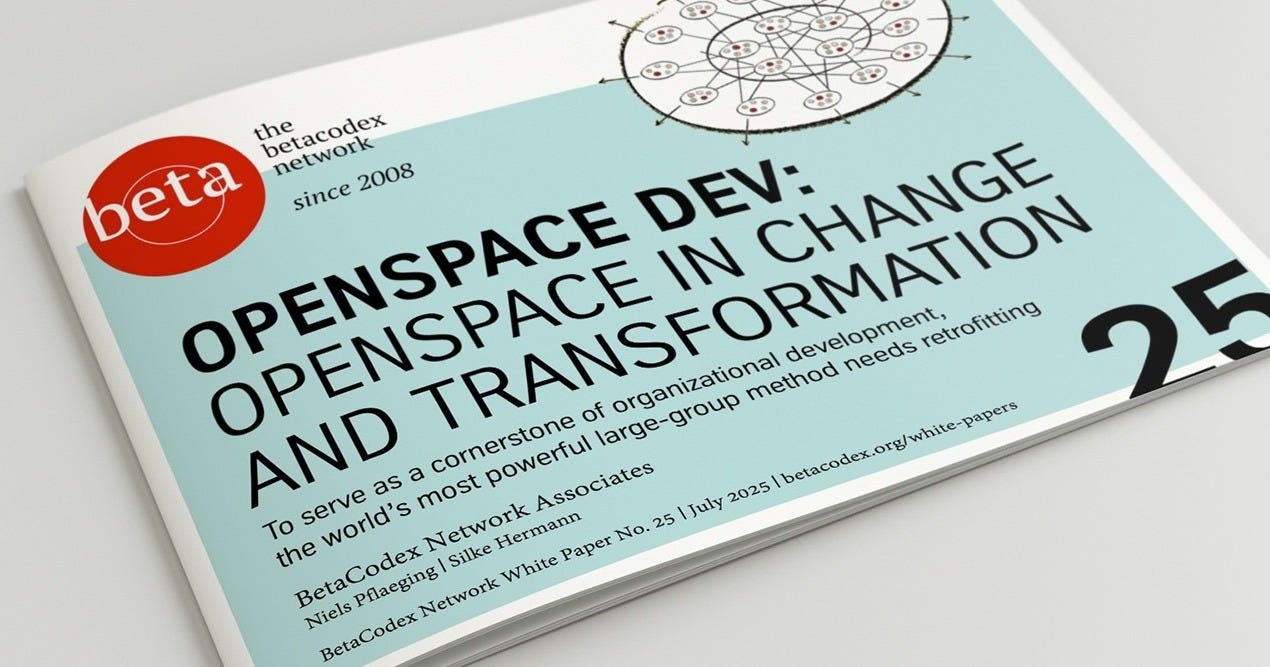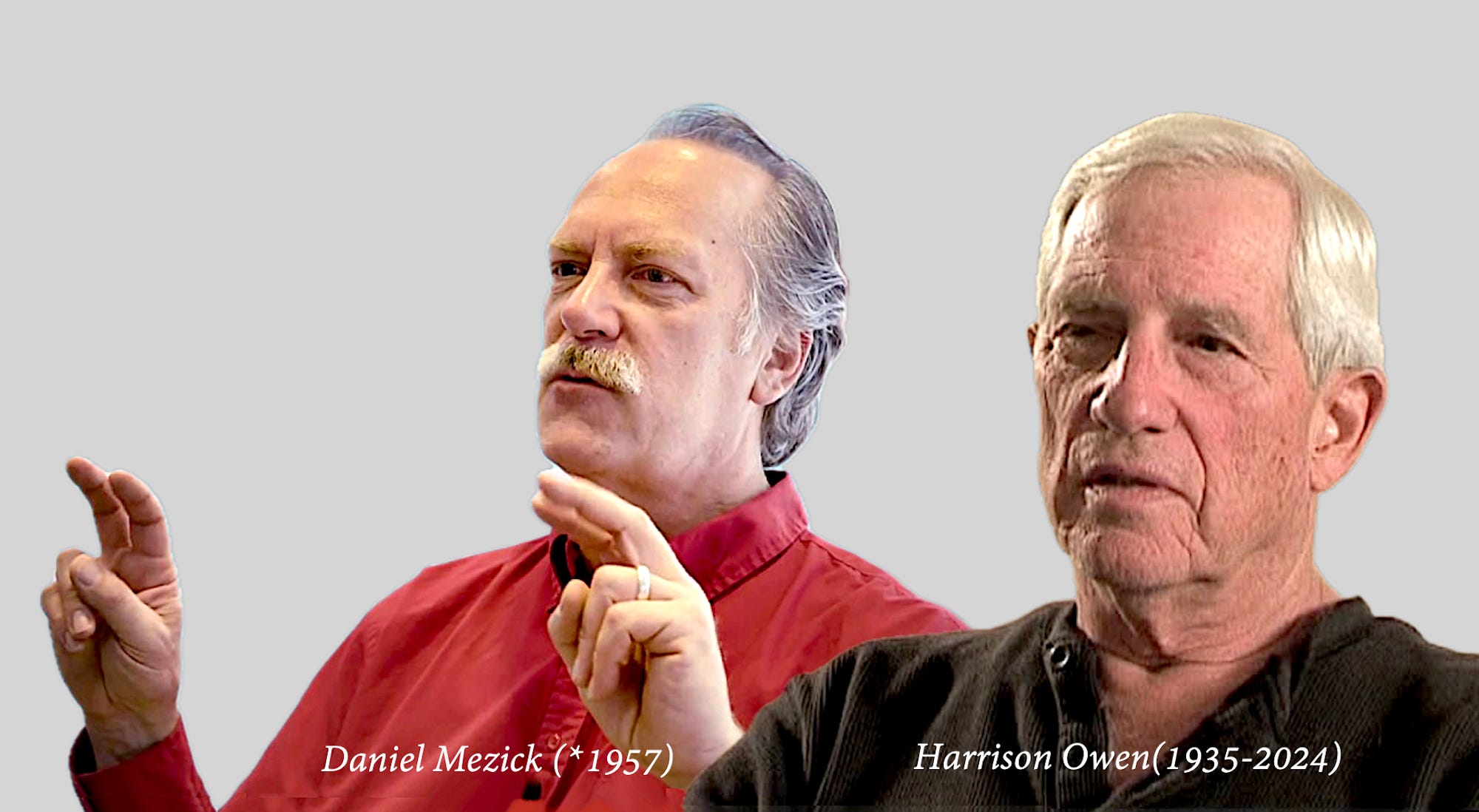Now at your fingertips: OpenSpace DEV
A new BetaCodex research paper by Silke Hermann and Niels Pflaeging outlines an approach to OpenSpace that enables organizational development with groups ranging from large to very large
The BetaCodex Network is all about organizational transformation: More specifically, it is about transformation from command-and-control (Alpha) to decentralized and democratic (Beta). So you may wonder why we are dedicating a research paper to a well-known and decades-old large-group meeting, or conferencing method. Why, you might ask yourself, is research on this topic needed? And why does the use of OpenSpace DEV in organizational transformation matter at all?
The answer is simple: OpenSpace Technology (OST), or OpenSpace, as we will call it in this paper, can be a powerful enabler of very fast organizational transformation, together with all the willing, all at once. But the commonly practiced forms of OpenSpace are not very well-equipped to be used in the context of organizational change and development work. Instead, a specific form of OpenSpace is possible and helpful that differs significantly from OpenSpace as you have come to know it. That variant of OpenSpace for organizational change work called OpenSpace DEV is the topic of this paper. The authors of this paper assembled and developed it, starting in 2011, and we believe sharing this social technology will make a difference to everyone involved in contemporary organizational development, and to everyone approaching Beta transformation.
There have been several different phases in our use of OpenSpace. One began in 2011, when we started to apply OpenSpace in earnest with our clients in our consulting work, with groups of 100 to 300 people – then mostly groups of managers from client firms. One of the most important deviations from traditional OpenSpace that we took was that we removed session “pitching” at the start of the OpenSpace meeting, having participants generate session proposals online instead, during the weeks running up to the actual meeting. We knew back than that this was a breakthrough, as we were able to raise the meeting’s intensity dramatically, while at the same time shortening the OpenSpace gathering itself. Participants arrived at the meeting very well-prepared, energized for topics and sessions, and in the mood for discourse, right from the start. We took another take on OpenSpace in 2018, when we began to use OpenSpace even more systematically and more consistently in our transformation work with the OpenSpace Beta approach. Here, again, we produced a bunch of concepts.
Our new research paper presents the 14 concepts that we consider foundational to OpenSpace DEV, and it explains the role of the open source license when using OpenSpace DEV.
Four decades after its inception, OpenSpace core methodology remains largely untouched. This poses problems
OpenSpace is the best and most intuitive large-group meeting format available today. Invented in 1985 by Harrison Owen, OpenSpace is arguably the world’s most practiced and most well-known large-group format, too. Despite its popularity, and somewhat surprisingly, the was OpenSpace are taught and ran in practice have remained largely unchanged for more than four decades: One might have expected a well-known “open source” approach like OpenSpace Technology to evolve, over time, to spawn numerous innovations and derivations for specific purposes. But this has not been the case, by and large. Sadly, not much effort has been placed into adapting OpenSpace method for different needs and circumstances. Our understanding is that practical application has not been as varied as it could have been.
OpenSpace, as it is typically taught and practiced today, it is not well-positioned to play a major role in organizational development or “transformation” that deserves the name: It is often perceived as too time-consuming, and too little oriented towards results and impact. While it may have been reasonable in the 1980s to expect a large group of people to dedicate “three days or more” (Harrison Owen) to a gathering on a pressing matter, it is hard to imagine a company-wide event to consume such an enormous amount of time. According to our research over the last two decades, we think It is fair to say that mainstream OpenSpace has rarely been used in the context of organizational development. Which seems quite ironic, as Mr. Owen developed the method specifically for an event called ”Organization Transformation Symposium.”
We believe that, after more than 40 years, OpenSpace deserves a sibling, especially if it is in-tended to involve entire workforces or large shares of an organization’s workforce, in the con-text of organizational change and development. While traditionally run OpenSpace meetings can liberate a lot of energy, and the original principles of OpenSpace interaction (which have changed very little since its inception) have held up, questions around the practical applicability of the OpenSpace method abound. Questions like: How can meetings be made shorter (maybe less than a day long), without losing or maybe even increasing impact? How can web technology, which did not exist in the 1980s, be used to bring more depth to the OpenSpace experience? How might OpenSpace sessions be documented and further processed to generate sustained impact after the meeting?
OpenSpace Technology needs to level up. Our new research suggests a way forward
We are not arguing that OpenSpace DEV is the only way forward for OpenSpace. Instead, we suggest it is a way forward, for those wanting to address organizational problems and make meaningful progress. It is worth noting that, while OpenSpace was originally developed to suit the needs of the organizational development domain, its rise in popularity happened during an entirely different era, in the 1990s, through “looser” applications such as stand-alone public events run under the names of bar camps and unconferences. By the late 2010s, an entirely different kind of OpenSpace-based approach to organizational transformation gained contour. The first appearance of this was OpenSpace Agility, based on the Prime/OS approach, developed by Daniel Mezick. The OpenSpace Beta approach (by the authors of this paper) also utilized Prime/OS, in order to enable system-wide change. These sophisticated social technologies deployed OpenSpace in a novel way: by using OpenSpace events as “engagement structures” (Daniel Mezick) for profound transformation, applying the large-group format not once, but twice over a period of 90 days, in order to time-box the transformation intended to occur between the first and the second OpenSpace events.
One might say that these innovations took OpenSpace back to its roots in the realm of organizational development. In OpenSpace Beta, in particular, OpenSpace is deployed in a way that explicitly authorizes those who accept the Sponsor’s invitation to work the system, together, building what we call Chosen Agency. We talk about the concept of Chosen Agency more thoroughly in a separate article.
Today, the fundamentals of the original OpenSpace Technology are widely known and covered in many sources and qualifications. While some of those basic concepts are often ignored, sadly, in practical applications of OpenSpace, we refrain from repeating “OpenSpace basics” in our research paper as much as possible – except when its fundamentals serve to accentuate or highlight specific aspects of OpenSpace DEV. Accordingly, the research paper is intended for readers who possess at least a basic understanding of OpenSpace Technology, and who have ideally experienced OpenSpace dynamics themselves.
An overview over the distinctions between OpenSpace Technology and OpenSpace DEV can be seen seen in the following illustration.

If you want to explore different, and more impactful ways of using OpenSpace in organizational change contexts, and the 14 characteristics that distinguish OpenSpace DEV from traditional OpenSpace, then the new research paper is for you!
This is an edited excerpt of the research paper OpenSpace DEV: OpenSpace in organizational change and transformation, published by the BetaCodex Network. The paper can be downloaded free of charge and free of registration from the BetaCodex Network website.





What makes the paper so special are the very practical tips and procedures. They are designed to stimulate and encourage organizational transformation.